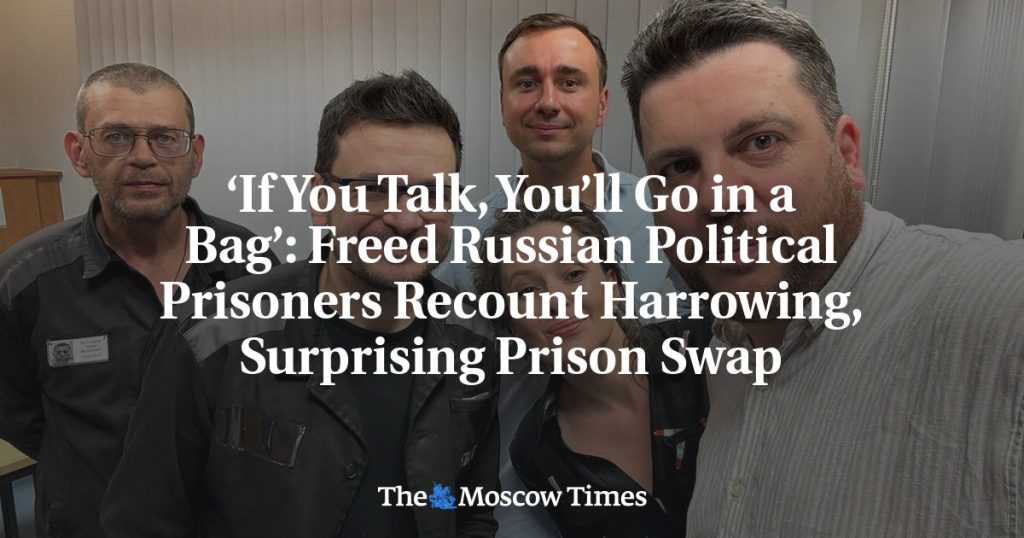Sasha Skochilenko, a 33-year-old artist from St. Petersburg, found herself being taken from her prison cell to Moscow with other prisoners, unsure of what was happening. She described the experience as feeling like they were being taken out to be shot, as they were accompanied by men in balaclavas who did not allow them to sit together on the bus. This was part of a historic prisoner exchange between Russia and the West, where 16 journalists, dissidents, and rights activists were released, including Skochilenko.
The days leading up to the release of the prisoners were filled with uncertainty and fear for their friends and relatives. The high-profile dissidents and journalists were moved to unknown locations, sparking speculation about a major prisoner exchange. Russian officials kept the information about the exchange strictly confidential, even from the prisoners themselves, their lawyers, and their relatives. The prisoners only learned about the exchange when their plane landed in Ankara, adding to the secrecy surrounding the operation.
The families and friends of the released political prisoners experienced a mixture of relief and new complications. For example, Raisa Tyurikova, the mother of opposition politician Andrei Pivovarov, was expecting her son to return home in St. Petersburg when his sentence ended, but instead, he was flying to Germany. Similarly, the parents of Navalny coordinator Ksenia Fadeyeva were unsure of their next steps, considering visiting their daughter or potentially leaving Russia altogether.
On the other side of the exchange, Russian citizens released by the West, such as Artem Dultsev and Anna Dultseva, were equally caught off-guard. They had been posing as an Argentine couple and only found out they were Russian after arriving in Russia with their children. The secrecy surrounding the exchange continued as Russian officials worked to prevent the movements of the prisoners from being publicly known. The children of those released were greeted by Putin with “buenas noches” as they arrived in Moscow.
The uncertainty surrounding the prisoner exchange highlights the challenges faced by those involved in political dissent in Russia. The efforts to keep the operation confidential and the unexpected nature of the release added to the stress and complexity of the situation for both the prisoners and their families. The fear of reprisals and uncertainty about the future remain prevalent for those who were released and those who remain in Russia.
The release of the prisoners serves as a reminder of the fragility of freedom of speech and political dissent in Russia. The lengths to which Russian officials went to keep the exchange secret underscore the risks faced by those who oppose the government. The families and friends of the released prisoners now face decisions about their futures, with some considering leaving Russia due to ongoing concerns about safety and freedom of expression. The prisoner exchange has shed light on the challenges faced by activists and dissidents in Russia and the lengths to which authorities will go to suppress opposition voices.


